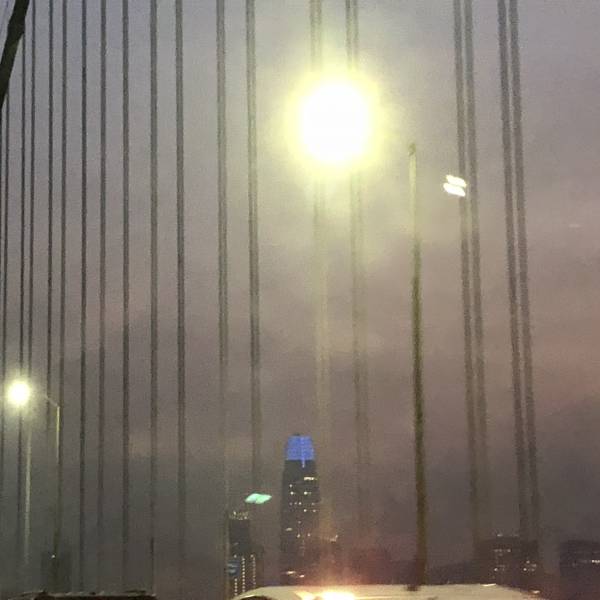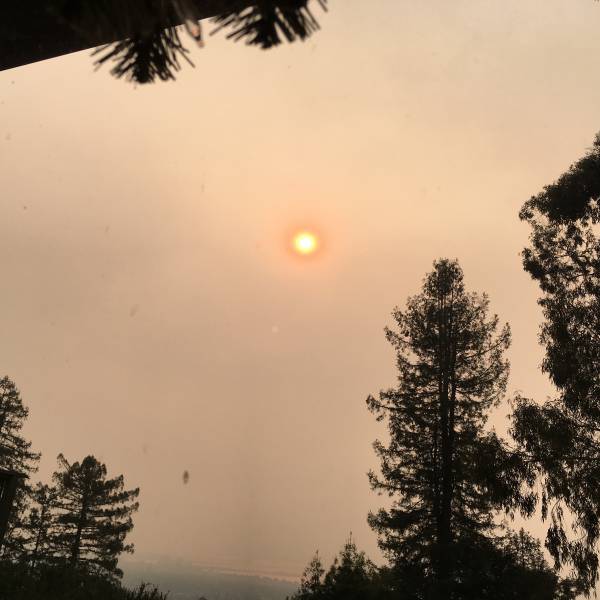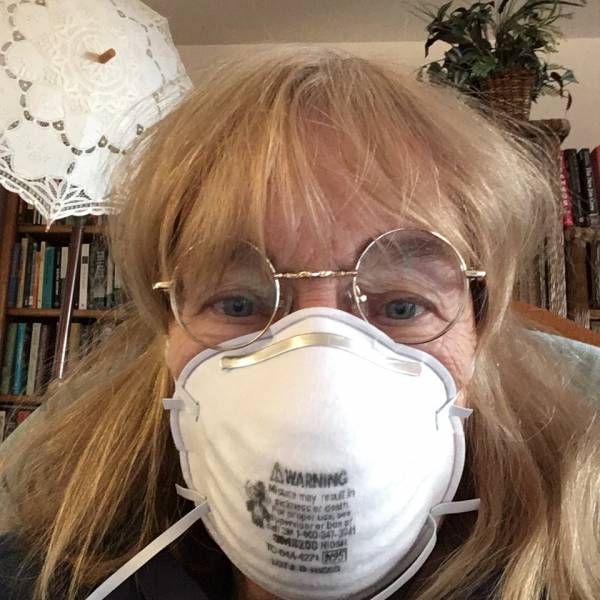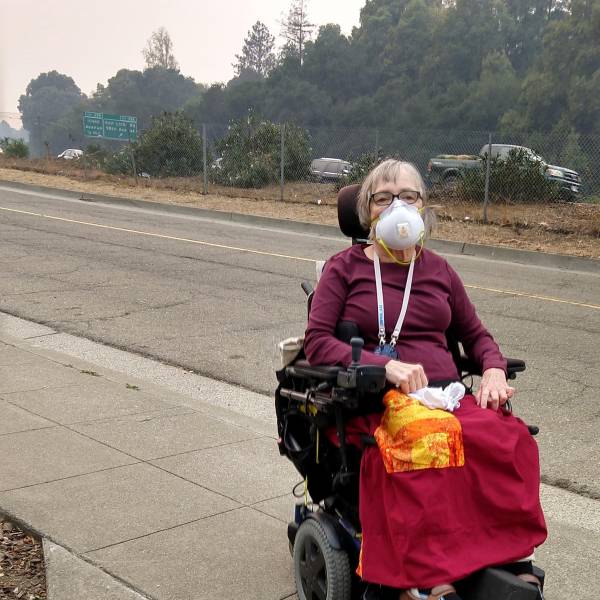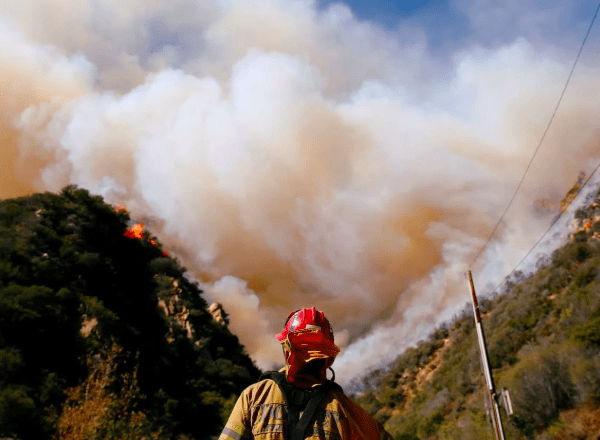350
CALIFORNIA ON FIRE
THE FINAL CALL ON CLIMATE
2018 has been one of the most destructive wildfire seasons on record in California, with a total of 7,048 fires burning an area of 1,627,652 acres, the largest amount of burned acreage recorded in a fire season. Communities across the state are facing the impacts of these fires ranging from hazardous air quality to entire swaths of infrastructure demolished in their backyards. As the recent IPCC report indicated, there are only close to 12 years left for us to move quickly and limit the amount of warming our planet can withstand before climate catastrophe increases to uncontrollable magnitudes. It is time for our leaders to take action on climate now.
We asked people from across California about how the current wildfires have impacted their communities and why they think their elected officials should take urgent action on climate change.
The Impacts
Personal Stories
“How are you being personally impacted by the wildfires?”
“Is it headed my way?” “Is my family safe?” “Should we evacuate?” “How many people do we know who lost their homes?” “Where are the flames?” Those are the questions that run through your mind in the midst of a firestorm. Stuck between two major conflagrations — the Hill Fire on my west less than a mile away, and the Wooolsey Fire to my southeast — at one point, a new fire, the Lynn Fire, was throwing smoke and being blown directly towards my house. “It’s not climate change” they say. “It’s bad forest management” (there are no forests here). This is my new normal, our new normal. Less than a year after the Thomas Fire leveled the homes of my friends and acquaintances in Ojai, Ventura, and Santa Barbara, followed by unspeakable tragedy due to the Montecito mud flows, it’s a situation played out again and again. Massive fires across the west, “100 year storms” dumping rain across the Midwest and the East; mind numbing hurricane damage from Hurricane Michael in Florida, and Hurricane Florence in the Carolinas; a summer of flash flooding across Europe and the Middle East; the biggest typhoon ever to hit the Commonwealth of the Northern Marianas Islands. It just doesn’t stop. The fact that it’s my hillside burning, those in my neighborhood losing their homes to flames–that my house could be next–just drives home that we are poorly prepared for a hotter, drier, more extreme climate. What does the future hold? How much worse can it bet? What will next year look like, and will we burn then? It’s unspeakable tragedy and loss in Paradise, it’s the apocalyptic vision of what, indeed, scientists have predicted will happen. It’s all too terrible to process.
— Ben Kuo, Newbury Park
Our air quality has ranged from 150-250ppm since the fire started. Our normal is between 10 and 25. We could not go outside the first couple days and shouldn’t even now. We live over 100 miles from the fire!
— Martha, Martinez
Not being able to go outside and enjoy one good day without gloom or smoke in the sky has been impactful to me on a daily basis since these fires started. Homeless people outside are being given masks to protect their lungs since they are among those predominantly affected by these fires. People with lung disease are putting up warning videos on the internet about the safety and health risks posed by detrimental smoke inhalation. I myself have not been outside for a simple walk, for a jog to let off some steam, for a bike ride. Outdoors activities seem to be at a haunt and I now have to take a trip to a local fire department for a face mask to prevent particulate matter from affecting my respiratory system. All masks have been sold out locally and so I’m hoping to be able to get a hold of one as soon as possible. It’s terrible, it feels like the end of the world and I wish it would stop. How much longer before greedy politicians see that this is not the fault of the forest department, but due to declining climate conditions due to global warming brought on by excessive CO2 emissions.
— Natalie, Northern CA
“The enormity of disasters exacerbated by climate change takes a heavy, extra emotional toll, human beings suffering losses being additionally traumatized by the knowledge that certain policymakers and corporate lobbies persist in protecting their own interests rather than responding to the emergency of the survival of the planet, the survival of human communities and of all life.”
– Deborah (Orleans, CA)
Dee, Chico
We have 3 refugees from the Camp Fire now living with us in Chico, CA: a husband, wife, and the wife’s 90 yr.-old mother — whose managed-care facility was completely destroyed. The husband and wife lost EVERYTHING in the fire, except for their cars and the clothes they were wearing. The wife had to drive from work, on the road shoulder, against 2 lanes of evacuating traffic, to get to her mother at the rest home, and then drove back with her through flames, and finally through 5-&-one-half hours of gridlock, to make it 18 miles down to us here in Chico. The husband drove 50 miles, northwards through forests (wondering if he was going to become trapped by some other fire),…fleeing after discovering that the cemetery next to their house was on fire. It took him 2.5 hours to reach our house. The family wasn’t reunited here for an additional 3 hours. The next day, the Camp Fire threatened us here in Chico (18 miles from Paradise), so our east side was evacuated. The next day, the husband who is now living with us helped his brother evacuate a house in Berry Creek, CA, which is more than 30 miles away from here.
Literally everyone we know who lived in Paradise & Magalia, lost everything they owned within 24 hours. And 1 person came EXTREMELY close to losing his life!
Mark, San Mateo
Schools were closed on Friday and again today so my kids have missed two days of school because of the unhealthy air quality and we still don’t know about the rest of the week. In the meantime, they can’t go outside except for very short amounts of time. Last fall, my kids missed 3 weeks of school when the fires happened right in our city. Are days and days of missed school and indoor time the new normal? It’s starting to feel like it. On the one hand, I’m grateful I still have my home and my life and so feel like I can’t complain when others have lost so much more. On the other, we can’t use that personal sense of gratitude/guilt to stop us from speaking out. Who knows what kind of damage this smoke is doing to us and our kids as it blankets the whole region. To say nothing of how re-traumatizing each new major fire is for our community as a whole based on everything we went through last year. I used to like the fall, but now this season just feels scary.
Myrto, Marin
People don’t even understand the impact of this pollution: it’s not just about breathing problems, about how it might impact premature babies and people with asthma. PM 2.5 pollution raises the body’s inflammation, and that worsens everything, from cardiovascular disease to pregnancy outcomes, to diabetes, joint pains, anxiety and depression, to autism rates, and cancers. This is a disaster, and because it is slow-moving we carry on business as usual, and think we can adapt.
As of Sunday night, the Camp Fire that struck Butte County days ago has now killed at least 77 people and left 993 still unaccounted for.
Donate
Support the people affected by the Camp, Woolsey, and Hill Fires in California. If you’re able, we encourage folks to send monetary donations. No donation is too small. As the Center for International Disaster Information notes, monetary donations are usually the most efficient and effective way to help in the aftermath of a disaster.
Monetary Donations:
- California Community Foundation – Wildfire Relief Fund
- American Red Cross
- California Fire Foundation
- United Way of Greater Los Angeles
- United Way of Northern California
- North Valley Community Foundation
- Ventura County Community Foundation
- United Policyholders
Volunteer:
Our elected officials must take action and recognize the urgent need of our country to shift away from fossil fuel dependence toward 100% renewable energy to prevent further climate chaos.
